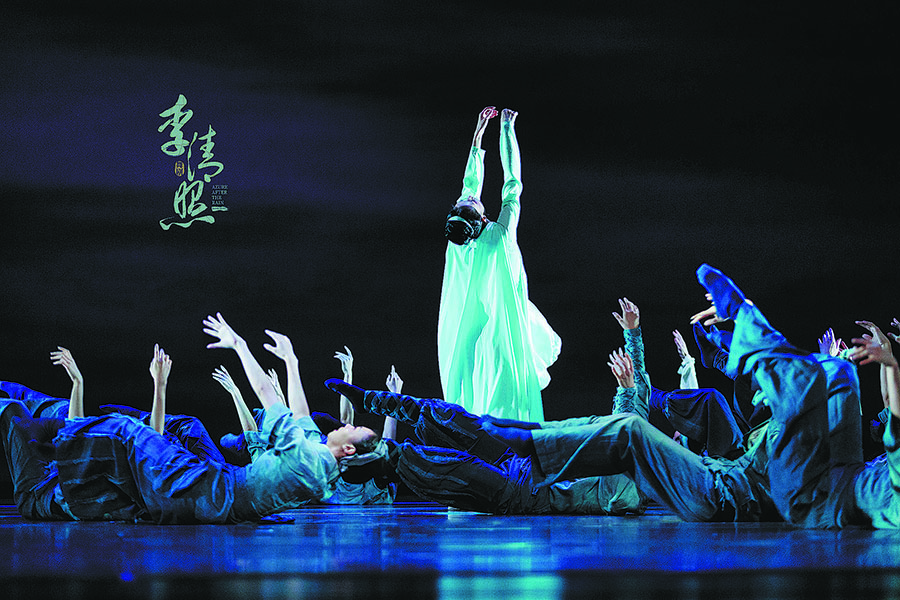Dancing tribute to poet's turbulent time


The poet was born in Ji'nan, Shandong province, to an esteemed family of academic professors and high-ranking officials. Her early-age creations were about happy memories, innocent observations and a love of nature. She was married at age 18 to Zhao Mingcheng, who shared her love of poetry, literature and art. The two lived happily and enjoyed collecting books, calligraphy and inscriptions on ancient bronze and rock artifacts.
When the Jin people from the north attacked the Song and took over the Song capital in 1127, Li and Zhao fled to the south of the Yangtze River. Zhao died two years later on his way to an official post, leaving the widowed Li in aimless flights of turmoil. Later she settled in Hangzhou in Zhejiang province, where she went on to create poems, writing about memories of her husband, her past life and their hometown.
She also completed a collaborative book with her husband, the Catalogue of Inscriptions on Metal and Stone, which documented the calligraphy on bronze and stones that the couple collected.
In her later years, Li briefly married Zhang Ruzhou, who treated her poorly. She sued him to get a divorce and exposed his intentions to take her treasured art collection. She survived harsh criticism of this failed relationship before dying at 71.
Although many of her poems disappeared in the turbulent years after her death, about 100 have survived, which made her a master of the subtle, concise style of Chinese poetry.
To realize the visual expression of Li's poems, Hu Yanjun, the designer for the show, created a stage based on the aesthetics of the Song Dynasty, which is characterized by minimalist lines and light colors.
"I didn't want to change the set between each scene, which would interrupt the storytelling, so I borrowed the form of ancient Chinese long scrolls," Hu says. She had three long screens made with their length stretching more than 100 meters, which are rolled on the side of the stage.
As the show opens, the long screens roll open from one side to the other, gradually revealing different backgrounds featuring visual elements of traditional Chinese art, following the smooth flow of the narrative and dance moves.
"We hope the show will resonate with today's audiences and inspire the younger generation to love her talent, creation and resilience," says Wang Yan, producer of the show and head of the Shanghai Dance Theatre.
Wang Jiajun, who portrays husband Zhao in the production, is a veteran artist with the Shanghai Dance Theatre, playing both protagonists in The Crested Ibises and The Eternal Wave.
"I am extremely fortunate as a dancer," he tells China Daily after the premiere. "Usually a dancer only has a few golden years on the stage. I have not only come across some quality productions and suitable characters but worked in a great time when audiences love the art and dance theater.
"We are seeing many new dancers in the company; and I hope to pass on my experience to them and they can take up major roles when the time comes."
























